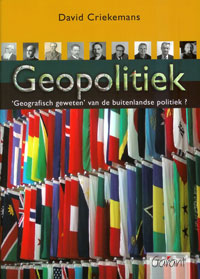Introducing David Criekemans
 David Criekemans is Associate Professor in ‘Belgian and Comparative Foreign Policy’ at the University of Antwerp (Belgium) and in ‘Geopolitics’ at both the Royal Military Academy in Brussels (Belgium) and the International Centre for Geopolitical Studies (ICGS) in Geneva (Switzerland). He also works at the Flemish Centre for International Policy (FCIP) in Antwerp (Belgium).
David Criekemans is Associate Professor in ‘Belgian and Comparative Foreign Policy’ at the University of Antwerp (Belgium) and in ‘Geopolitics’ at both the Royal Military Academy in Brussels (Belgium) and the International Centre for Geopolitical Studies (ICGS) in Geneva (Switzerland). He also works at the Flemish Centre for International Policy (FCIP) in Antwerp (Belgium).
You can download the pdf-file of the Simulation Exercise (903 kB)
Article
During the year 2009, a rapid and dangerous breakdown of relations between North Korea (aka, the Democratic People’s Republic of Korea or DPRK) and the international community occurred. On 25 May 2009, North Korea conducted the second underground nuclear test in its history, followed by the launch of several missiles.
After three weeks of negotiations held in strict confidentiality within the UN Security Council (UNSC), first among the P5 plus Japan and South Korea, and then among all Council members, the UNSC adopted on 12 June the resolution 1874 condemning the nuclear test, expanding the existing arms embargo, authorising inspection of cargoes to and from the DPRK, as well as vessels on the high seas, prohibiting financial services and transfers to the DPRK that could be linked to weapons related activities and authorising asset freezes in this regard, and calling upon states and international institutions not to provide new financial assistance or trade support to the DPRK, except for humanitarian or development assistance.
The Council also decided that the 1718 Sanctions Committee would adjust its measures within thirty days, through the designation of additional entities goods, and individuals. Finally, it requested the Secretary-General to establish a panel of experts to monitor and verify implementation of the sanctions measures.
The response of the DPRK was belligerent; it threatened with open war should its vessels be boarded, it raised the operational level of its troops alongside the Demilitarized Zone (DMZ), it conducted even more missile tests, and it announced speeding up its uranium enrichment programme, thereby increasing the likelihood that it soon will have at its disposal multiple atomic bombs. Finally, Pyongyang recalled to the international community that it possesses the capability to destroy the capital of South Korea, Seoul, within half an hour – even by conventional means.
North Korea is bringing the region and the world ‘to the brink’ of war and disaster, and nothing seems to stop them. Furthermore, dangerous ‘cat and mouse’ games between the North Korean fleet and the naval fleets of the US, South Korea and Japan might even provoke incidents which would lead to war eventually.
The Security Council meets to stave off potential disaster.
Related webpages and book
 Onderzoeksgroep Diplomatie en Geopolitiek
Onderzoeksgroep Diplomatie en Geopolitiek- Vlaams Steunpunt Buitenlands Beleid
- Personal page of David Criekemans
“Geopolitiek, ‘geografisch geweten’ van de buitenlandse politiek?”, Garant / Maklu (Antwerpen / Apeldoorn), 2007
